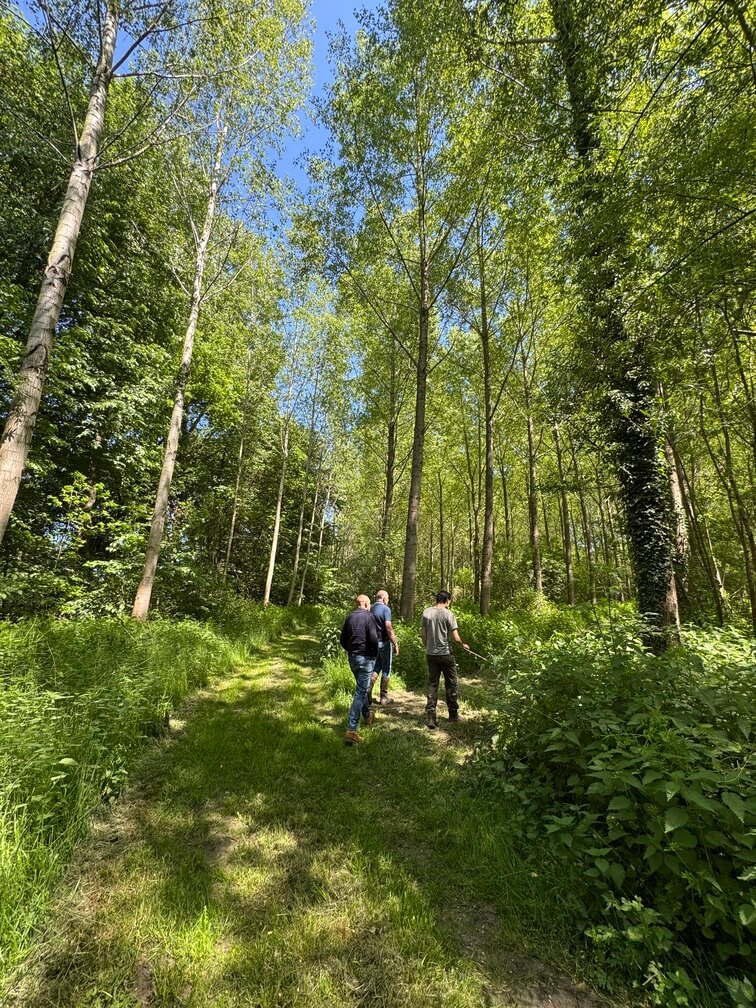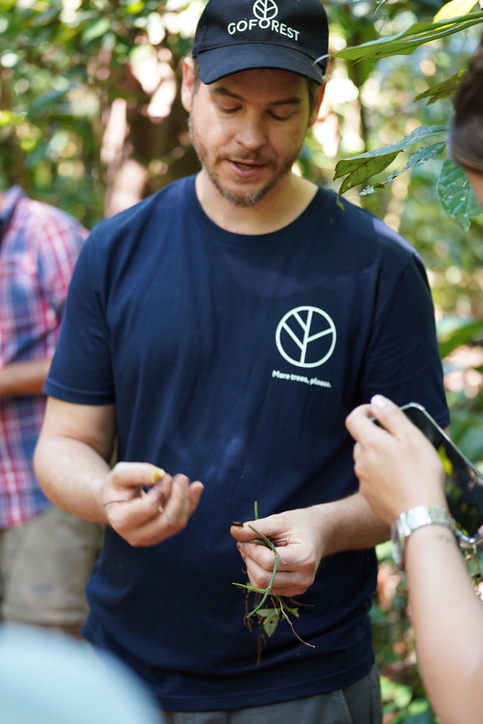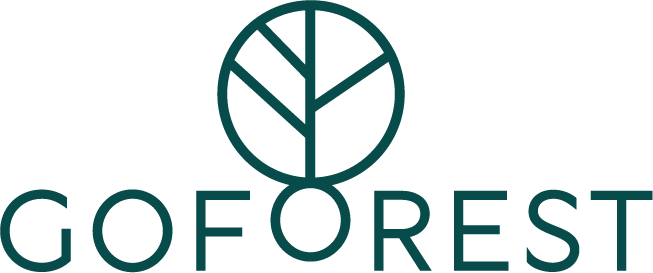In the face of global change and environmental degradation, reforestation has become a key strategy for restoring our planet’s ecosystems. While publicly owned lands play a significant role in conservation efforts, there’s a growing recognition of the importance of supporting private landowners throughout their forest restoration and management activities. This article explores how focusing on private lands may be the next ‘reforestation boom’, and how it can be particularly effective for companies interested in sustainable forest restoration projects to integrate into their sustainability journey.
The importance of private landowners for sustainable forest management
In many countries, including Belgium, the majority of forests are owned by private individuals. Without their involvement, it would be unthinkable to maintain healthy forest ecosystems and to make them accessible for forest restoration and sustainable management initiatives. This means that to achieve meaningful reforestation goals and to sustain forests at a larger scale, it is crucial to support these private forest landholders.

Why is it so interesting to support private landowners?
Private forests, often accessible to the public, are as much relevant as publicly-owned forests when it comes to shared environmental values, since they contribute to the provisioning of a wide range of Forest Ecosystem Services (FES). However, in light of the uncertainties associated with climate change, partnering with private landowners can be more impactful for a variety of reasons:
1. Flexibility in forest management
Private landowners often have more flexibility in decision-making and managing operational work. This allows for quicker implementation of reforestation projects, more direct communication, and adaptation to changing environmental conditions. Without the bureaucratic hurdles often associated with public forestland management, efficient private owners can respond more rapidly to external challenges such as storms, health crises (i.e. bark beetle invasions), fires, and more.
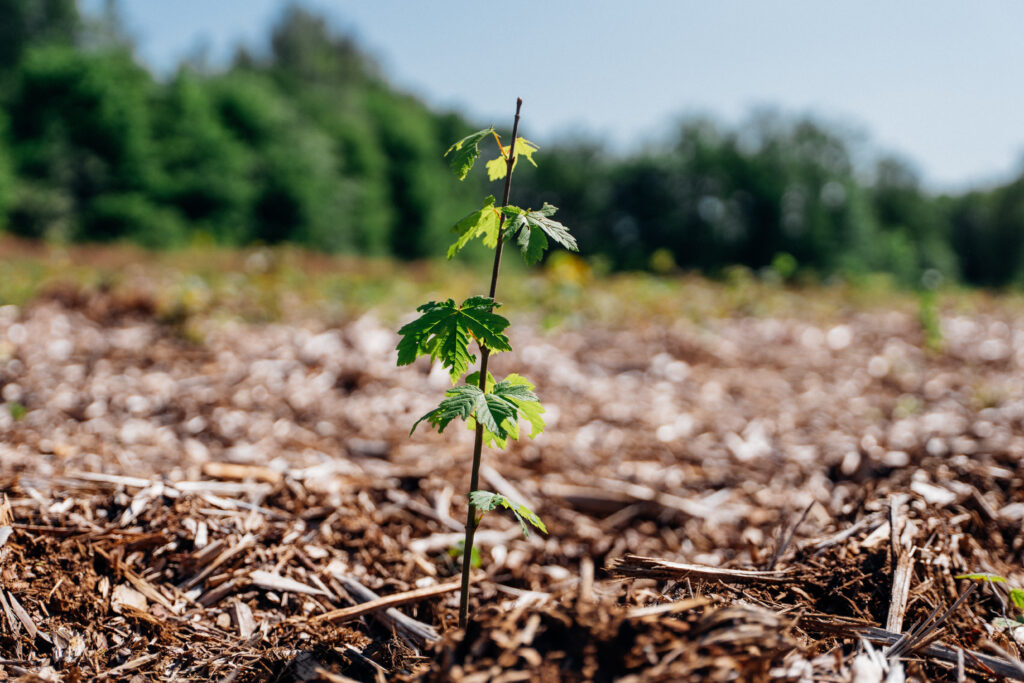
2. Significant land coverage & ecosystem benefits
Although there exists a mosaic of forest management ownerships and approaches, there is a wide set of ecosystem benefits offered by privately-owned forests, especially in countries where this ownership type is the predominant and forest cover is extensive (i.e. Northern Europe). Furthermore, private lands represent a vast portion of available space suitable for reforestation. In Europe alone, private landowners together possess 56% of the forest area. Additionally, whenever supporting private landowners, more land for reforestation can be unlocked, since some private lands remain underutilized and unmanaged as of today. By doing so, companies can significantly expand the areas being restored, exponentially increasing the impact on biodiversity and carbon sequestration
3. Meeting corporate demand
Privately owned lands offer a sufficient volume of projects to match with corporate demands and schedules for each environmental project. As more companies seek to offset their carbon footprint and/or contribute to environmental causes, privately owned lands provide the necessary scale and diversity of projects to meet this growing demand.
4. Strengthening local economies
Supporting private landowners in reforestation initiatives can substantially boost local economies. Companies can create jobs in tree planting, land management, and ongoing maintenance, offering new economic opportunities. In addition to this, private landowners can also diversify income streams through sustainable forestry and agroforestry practices, which in turn reinforces regional economic resilience.
5. Complementing public efforts
Reforestation projects on private lands in Belgium can be supported by both public and private funds. This ensures that resources are used efficiently for the benefit of the forest while allowing for a collaborative effort between private initiatives and public support. In Belgium, this varies between regions: generally public aid in Flanders ranges between 60- 80% of the purchase price of total land costs, limited to €3.5/m² for private forest owners; for Wallonia the percentage is lower, around 30%, and corresponding to additional premiums for regeneration rather than fixed subsidies. 5 For more information, visit the links Subsidy reforestation (Flanders) and Reforestation (Wallonia).
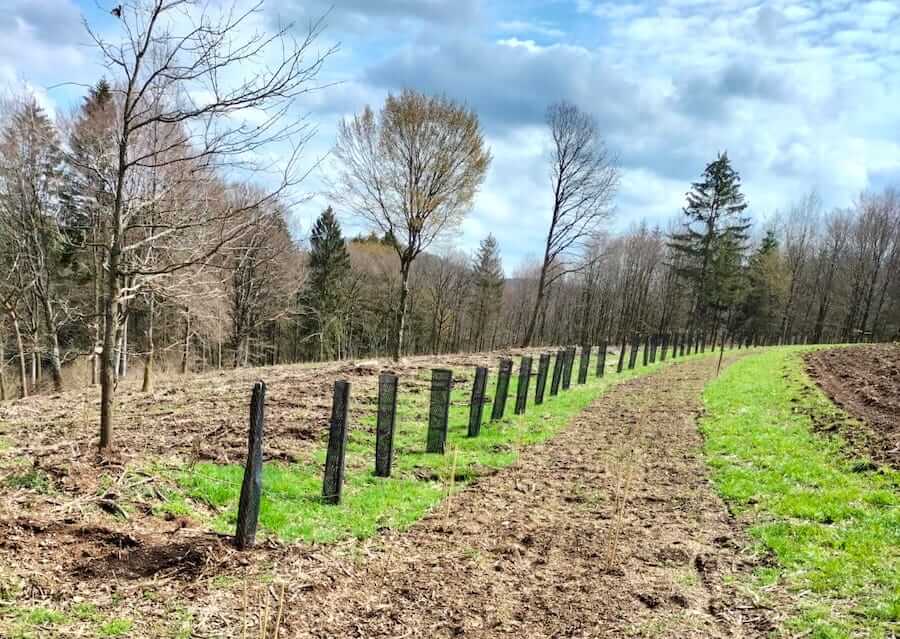
6. Long-term commitment
Many reforestation projects require a long-term commitment. For instance, some initiatives demand a 30-year commitment and adherence to specific conditions such as species diversity. Dedicated private landowners, with their vested interest in their property, are typically well-positioned to make and maintain such long-term commitments. Moreover, there is growing evidence, both in Europe and around the world, that landscape and environment-related objectives, including biodiversity conservation, have been increasingly perceived as important by small-scale private forest owners. Thus, by providing financial resources, technical expertise, and educational opportunities, companies can encourage land management strategies that prioritize ecological health over short-term economic gains. This support motivates private landowners to take part in the transition towards more holistic and responsible forest maintenance.
7. Utilization of local knowledge
Local landowners often possess previous knowledge and information of their lands, which can be invaluable in designing effective restoration strategies.
Concluding remarks
Given their large ownership of forest areas and strong valuation of biodiversity, private forest owners hold significant potential for driving integrative forest conservation through their diverse management styles. While both public and private lands are crucial for reforestation efforts, supporting private landowners can offer unique advantages.
- Their flexibility, the vast areas they control, and their potential for long-term commitment make them invaluable partners in global collective efforts to restore and manage forests sustainably.
- By supporting these forest stakeholders, any business can effectively promote environmental stewardship, while simultaneously creating an impactful, lasting change.
- Local knowledge represents an added value when it comes to forest restoration initiatives.
By embracing such a collaborative approach and empowering these landowners with the right support, Go Forest strives to accelerate its progress towards more resilient forest ecosystems. For this reason, the majority of our Belgium and European-based projects (around 95%) are planned with motivated private forest owners, whose land availability and long-term protection is secured through contracts, ensuring full transparency and accountability. By doing so, we can secure a promising future for our forests.
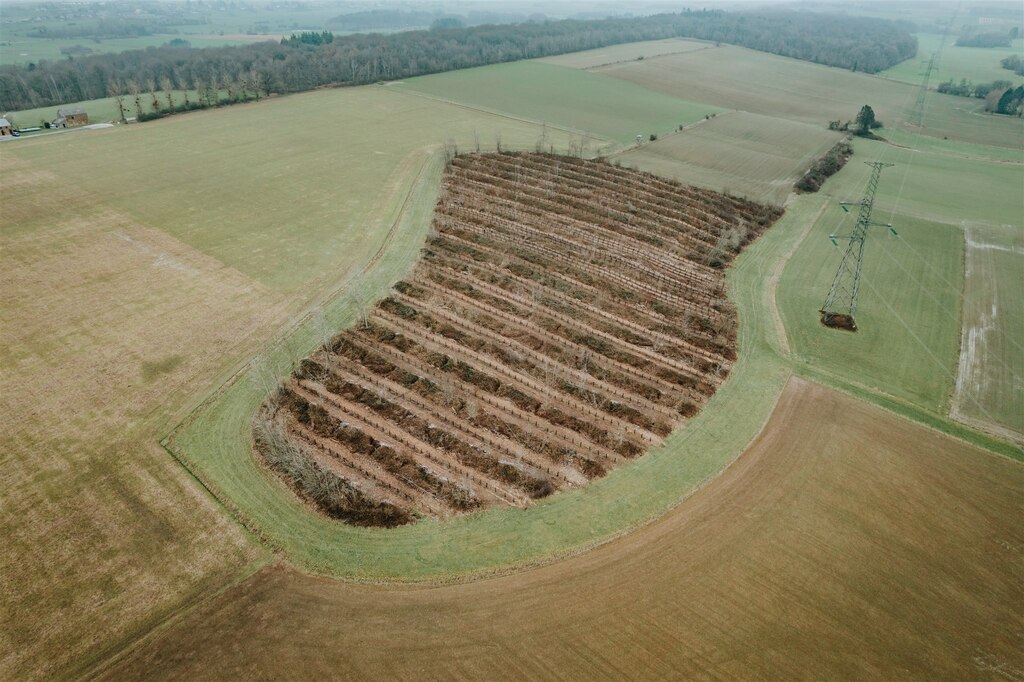
Sources
- Confédération Belge du Bois (2021): https://www.confederationbois.be/aides-au-reboisement/
- European Forest Institute (EFI): https://efi.int/forestquestions/q2_en#:~:text=In%20the%20EU%2C%20about%2060,commons%2C%20churches%20a nd%20aristocratic%20estates
- Sylvanova: https://www.sylvanova.eu/en/forest-management/
- Tiebel, M., Mölder, A., Bieling, C., Hansen, P., & Plieninger, T. (2024). Understanding small-scale private forest owners is a basis for transformative change towards integrative conservation. People and Nature, 6, 337–353. https://doi.org/10.1002/pan3.10579
- UNECE & FAO. (2020). Who owns our forests? Forest ownership in the ECE region. Geneva Timber and Forest Study Papers. United Nations. https://doi.org/10.18356/7dc640e2-en
- Wiersum, K. F., Elands, B. H. M., & Hoogstra, M. A. (2005). Small-scale forest ownership across Europe: Characteristics and future potential. Small-Scale Forest Economics, Management and Policy, 4, 1–19. https://doi.org/10.1007/s11842-005-0001-1


